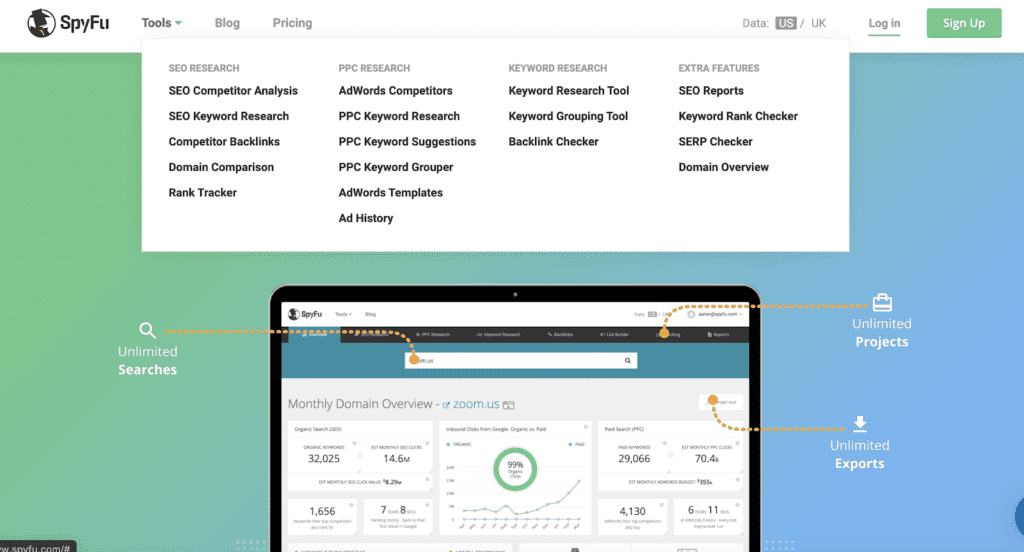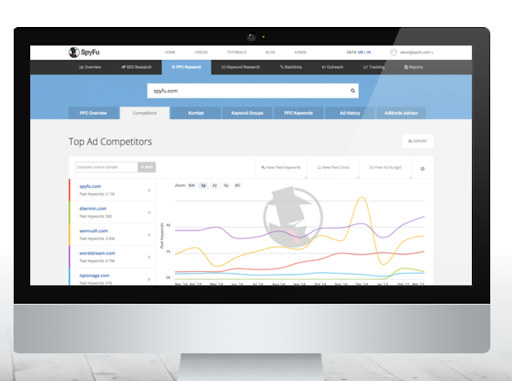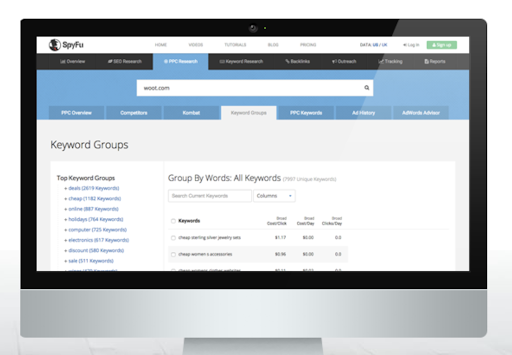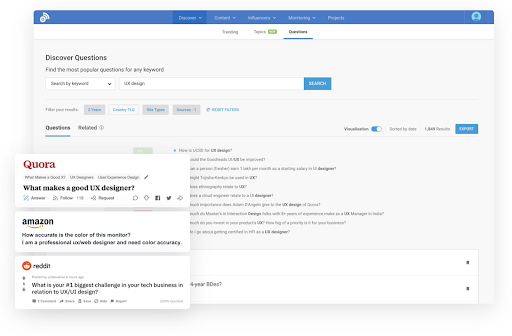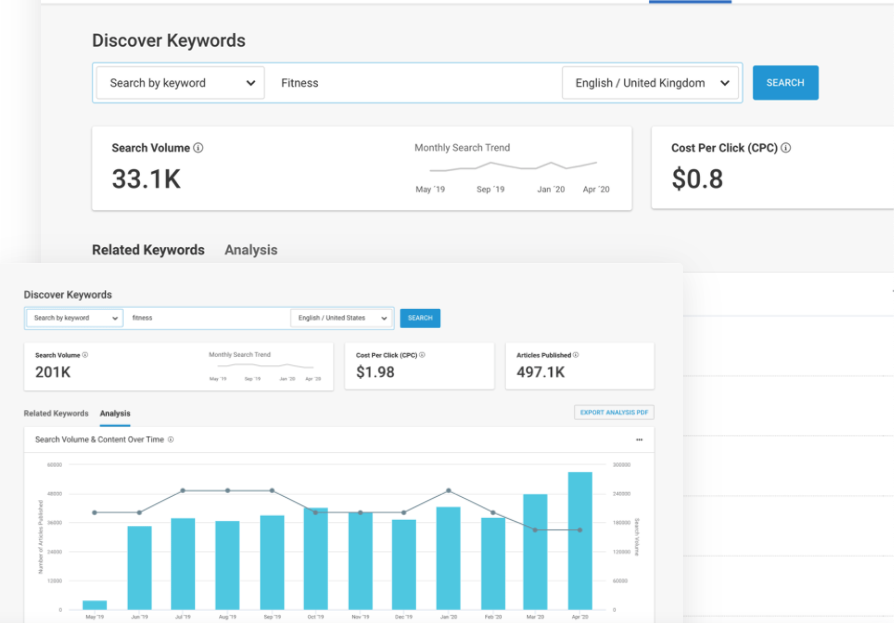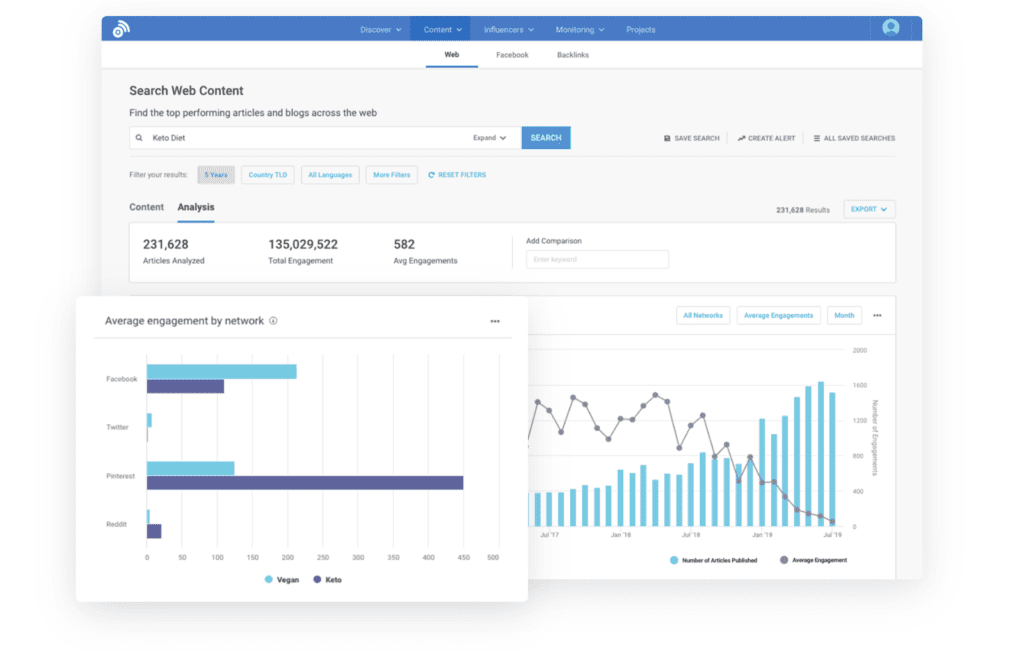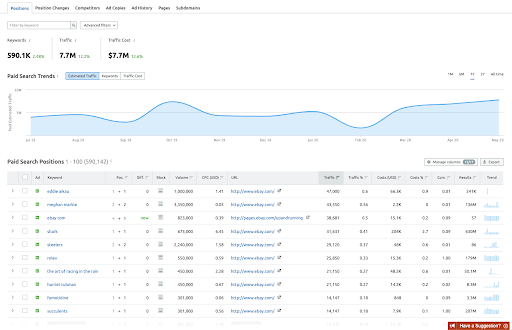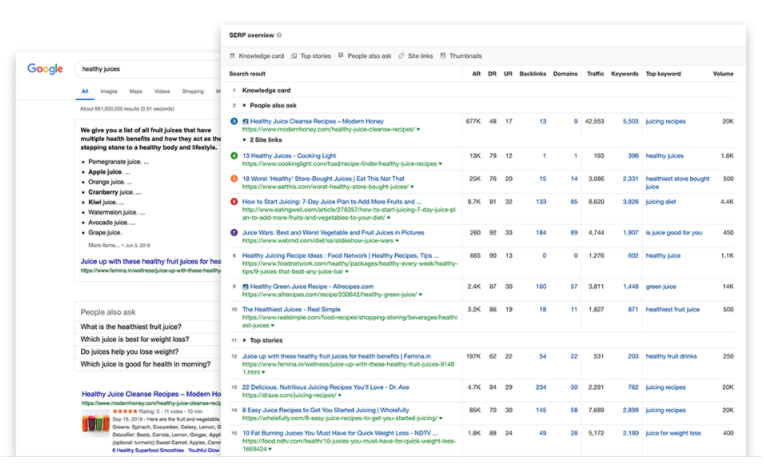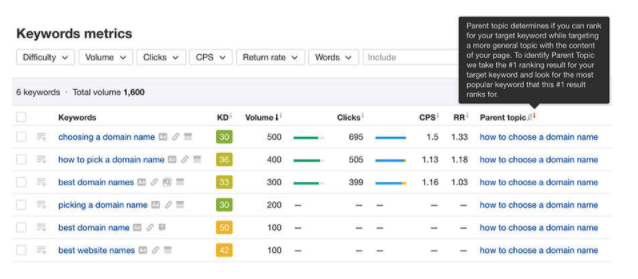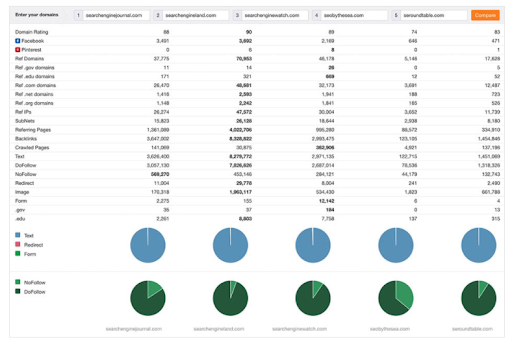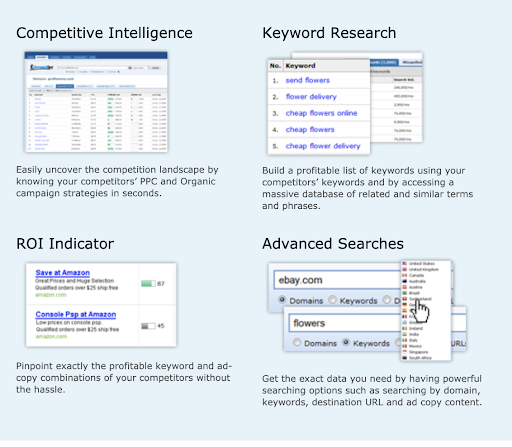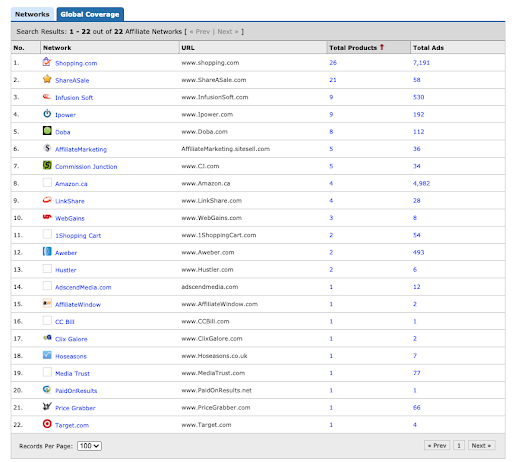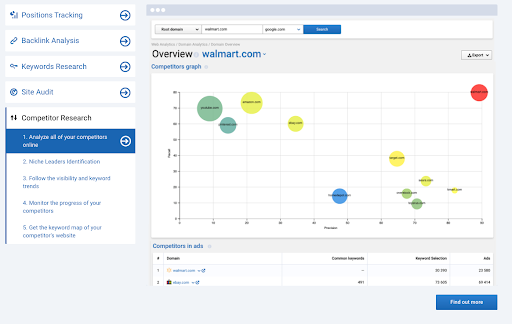With the right roadmap, a little investment, and some strategic research, you can reverse engineer your competitors’ most successful PPC strategies.
In this article, I’ll share some tips for ethically engaging in some PPC espionage that can take your paid ads game to the next level.
What You’ll Learn:
- The importance of competitive keyword analyses
- The best tools for spying on your competitor’s PPC keywords and strategy:
Why Competitive Analysis of Keywords is a Critical Strategy?
There are several reasons that performing competitive intelligence on your keywords is worthwhile.
Competitive keyword analysis allows you to reverse-engineer your competitors’ PPC strategy by uncovering the search terms that are driving qualified traffic to your competitors.
It’s also an effective way to see where you’re falling behind, spot gaps in your SEO and PPC strategy, and gain a critical advantage over other companies within your niche.
Here are some more specific ways that a little spy-work can serve you well:
- Find new keywords for your next campaign. One of the most obvious reasons to run a competitive analysis is to see which keywords your competition is ranking for that you haven’t used yet.
- Learn where your competitors are beating you. Competitive analysis can help you analyze your competitors’ performance to see who is outranking you for your target search terms.
- Find which terms competitors are bidding on. Identifying keywords that the competition has been bidding on long-term are likely to have high commercial intent. As such, creating content and ad campaigns around those topics can be an effective strategy for driving conversions.
- Find lower competition long-tail keywords. Dig deep into your competitors’ content to identify low competition long-tail search terms. While these might not deliver large amounts of traffic to your site, these terms are low-hanging fruit that might help you carve out a larger presence in the SERPs.
- Identify snippet opportunities. I’ve written about snippets a lot over these past few years, and more and more, they’re becoming a bigger part of the SERP landscape. Learning which of your competitors’ keywords trigger various featured snippets can help you pinpoint what kinds of content regularly gets the coveted “position 0” spot.
- Quickly identify your content gaps. Find out which keywords deliver targeted traffic to your competitors that aren’t yet part of your strategy. Use that intel to create or refresh content that outranks them.
- Find secondary keyword opportunities. Remember, one article can rank for multiple keywords. Look at top-ranking content for keyword variations, topics, and related questions to help you capitalize on more ranking opportunities for existing content.
The Best Tools in the Game
A lot of what it takes to spy on your competitors comes down to having the right tools.
Remember, even if a competitor is ranking well in the paid results and is paying a fortune for that top spot, it doesn’t necessarily mean they’re getting a ton of conversions. Your goal is to identify the company’s overall successes, not just the bidding strategy.
That said, I’ve compiled a list of tools that can make this process a whole lot easier. Here’s a look at my top picks:
SpyFu
Best for: All things competitive analysis. Spyfu comes with a whole suite of tools designed for the express purpose of digging up dirt on your competitors’ PPC strategies.
SpyFu is another popular option I’ve mentioned a few times before. As far as PPC espionage goes, the platform comes with several handy tools, including:
- PPC Ad Rank Tracker
- Google Ads Keyword Spy Tool
- Monitor PPC Competitors
- Ad Grouping Tool
- Competitor Campaign & Ad Testing History
The platform’s Kombat report allows users to compare your website with two other domains to instantly identify shared keywords, keywords you buy but your competitors don’t, and where competitors’ ads appear but your ads don’t.
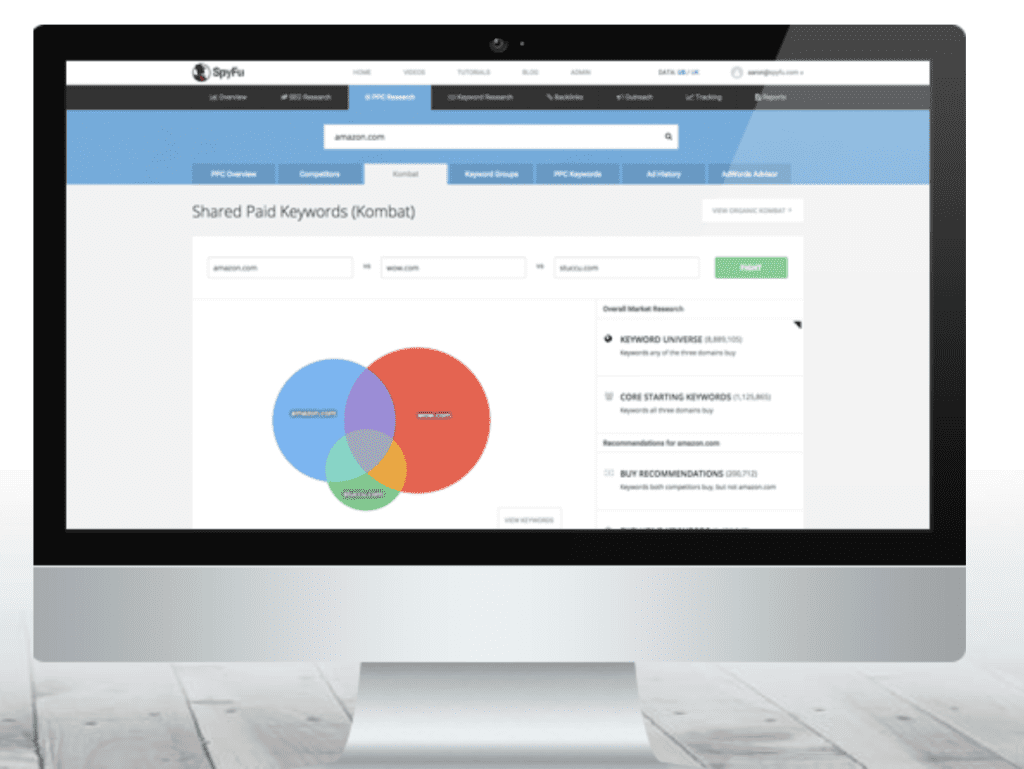
Use SpyFu’s shared paid keywords report to spy on your competitor’s strategy Source
There’s also the “competitors” tab which is designed to help you identify your top ads competitors. There, you’ll see every domain bidding on your target keywords, changes in competitor ad spend, and emerging “threats” to watch out for.
Additionally, SpyFu has a tool that automatically creates ad groups for your PPC terms, making it easier to create tighter ad groups (and improve your Google Ads quality score) based on the platform’s suggestions.
BuzzSumo
Best for: Analyzing competitor content and the key metrics that reveal where competitors are finding success. More geared toward content marketing/social listening than PPC, but useful for learning about audience intent and what types of content are more helpful in connecting with those key groups.
I’ve mentioned BuzzSumo several times because it’s an excellent tool for running competitive intel–whether you’re looking at competitor social media content, audience insights, or keyword inspiration.
BuzzSumo is great for uncovering competitors you might not have been aware of in the past–and learning more about which content performs best on social media. That said, there are some really useful PPC competitor analysis tools baked into the platform.
For example, the “Discover Questions” tool allows users to find the most popular questions associated with any keyword:
There’s also a keyword reporting tool that allows you to get CPC stats, search volumes, etc., with the added benefit of reviewing that information in context.
BuzzSumo also comes with content comparison reports that allow you to look at competitor performance on Facebook, the web, and by the number of backlinks they’ve earned.
SEMRush
Best for: All-in-one digital marketing tool, ideal for identifying content gaps, running keyword analytics, and competitive analysis.
SEMRush is one of the better bets on this list for delivering big-picture insights designed to make any digital campaign (paid, social, or organic) successful.
While SEMRush offers a long list of research tools, their ad-specific suite is spot-on for digging up competitive intel. Within the “Advertising Research” tool, users can perform the following tasks:
- Monitor competitor PPC activity, ad spend, and most effective PPC ad copy.
- Analyze competitor PPC keyword usage trends on Google and Bing.
- See examples of live ads.
- Learn which keywords your competitors are bidding on.
Here’s a look at what comes up if you enter “eBay” into the platform’s search bar and navigate to the “ad copies” tab:
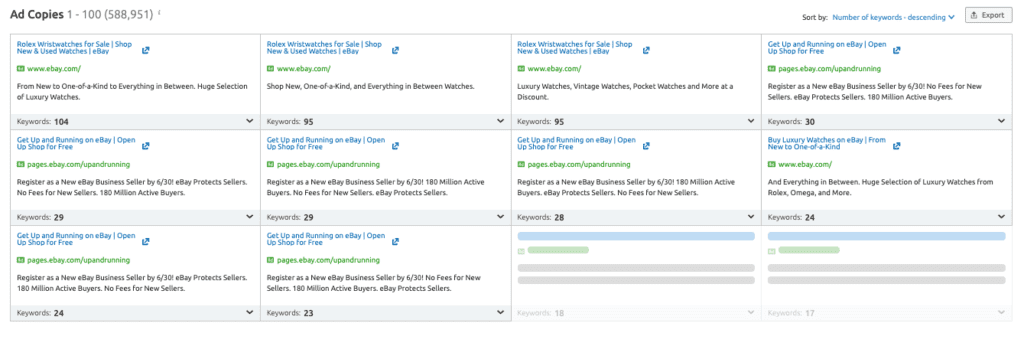
SEMRush ad-specific suite in the Advertising Research tool is great for spying on competitor PPC keywords and ad spends Source
Additionally, SEMRush is also a great keyword research tool. For example, there’s one report that shows users a breakdown of competitive keywords, traffic volume, and percentage of all traffic–making this a reliable option for those looking to do the bulk of their competitive analysis in one place.
Ahrefs
Best for: Getting detailed insights for your target search terms.
Ahrefs, like SEMRush, is another all-in-one SEO tool that can help with a wide range of digital marketing activities.
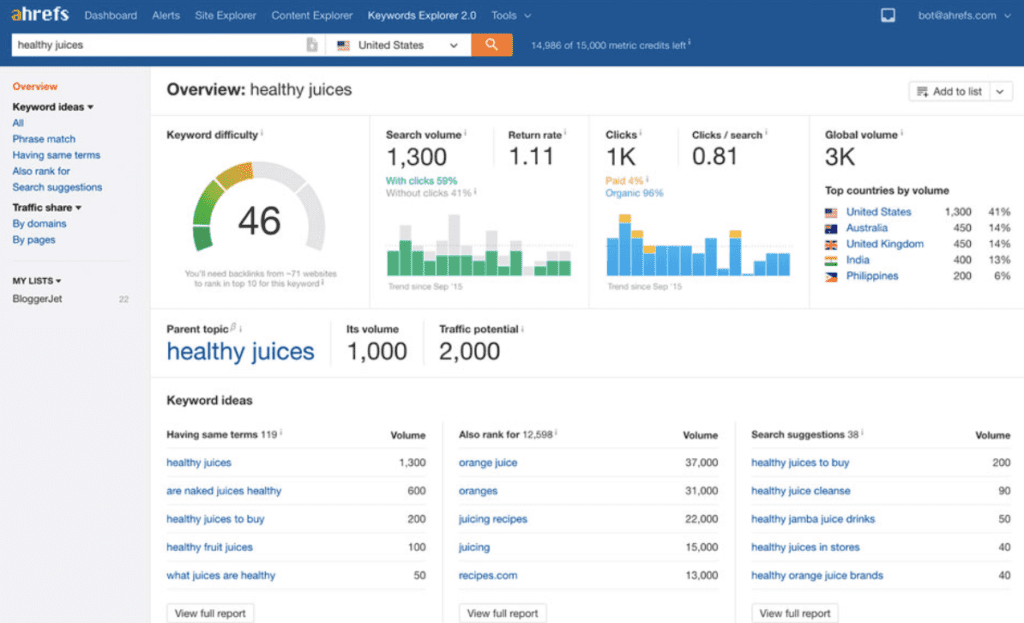
Ahrefs, like SEMRush, is another all-in-one SEO tool that can help with a wide range of digital marketing activities.
This platform offers a lot of valuable information about the competition, including their PPC ads, keywords, and website traffic. While Ahrefs is marketed more as an SEO tool, the platform offers a great PPC crawler that captures all ad intel related to specific keywords.
Most of your PPC competitor analysis can be done using the platform’s Keyword Explorer tool.
For example, the SERP Overview report allows you to quickly review the top SERP results, so that you can understand why certain pages are successful and work that intel into your own strategy.
Additionally, Ahrefs also comes with a domain comparison tool. While this feature is designed more for backlink research, it allows you to quickly identify and compare competitor performance based on a variety of SEO metrics:
iSpionage
Best for: Those seeking a solid all-around PPC keyword spy tool. iSpionage offers a unique mix of competitive intelligence features that dig deep into rival strategies–right down to their landing page data.
iSpionage is a competitive analysis tool designed to help you uncover information about your competitors’ SEO, PPC, and SEM strategies to inform your marketing strategy moving forward. The tool allows you to see your top competitors’ keywords, landing pages, ads, and even their customers’ conversion paths.
It also allows you to ID new keyword opportunities to use in campaigns and benchmark your performance against others in your niche.
KeywordSpy
Best for: Advanced keyword research.
KeywordSpy allows you to check out your competitors’ keywords, ad copy, and how much they’re spending on ads. While KeywordSpy isn’t the most visually appealing tool on this list, it does come with some pretty handy features.
Unlike some of the other entries on this list, KeywordSpy includes reporting tools specifically designed for affiliate intelligence.
They do offer a free trial, which allows you to analyze up to 10 keywords, competitor domains, and ads. This way, you’ll have a chance to get a feel for the platform without the commitment.
Moat
Best for: Audience intel.
Unless your competitors are targeting you, it’s difficult to dig up any information about their Display ads. Moat is a bit different than say, Ahrefs or SEMRush in that it’s a cross-platform analytics tool that allows users to understand their customers in super granular detail. The tool isn’t just for analyzing your own audience, Moat can also be used to look at the ads your competitors are running everywhere from TV to PPC.

Here’s a look at what comes up if you search for “Kroger” using the platform’s advertiser report Source
Serpstat
Best for: Serpstat is an effective tool for landing some easy PPC wins. You’ll get a user-friendly competitor research tool, site auditing features, and keyword research for PPC, social, and SEO campaigns.
Serpstat is another all-in-one digital marketing tool designed to help users nail their PPC, SEO, and social media campaigns. From a competitive intel standpoint, the software allows you to enter any domain or search by keyword to see how your competitors are performing.
Within the “competitor research” tab, you can get an overview of where you stack up against your rivals:
From there, you can analyze their strategy, as well as learn which keywords are most profitable.
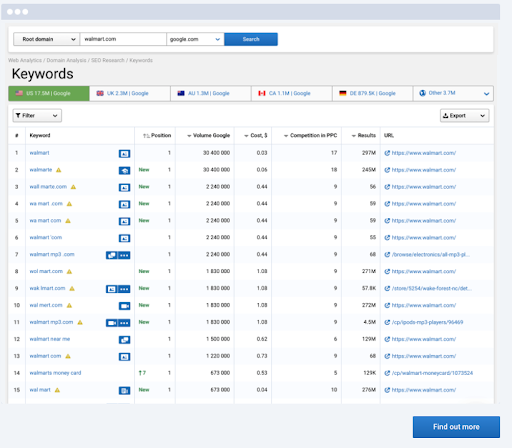
Here’s an example of Walmart’s top keywords Source
Other features include a full SEO analysis, which reveals all of a competitors’ organic traffic sources down to the location and keyword.
Wrapping Up
Now that you’re armed with information about how you can ethically and effectively spy on your competitors, it’s time to put that knowledge into action.
In the end, spying on your competitors’ PPC strategy comes down to having the right tools at your fingertips.
I recommend evaluating several spymaster tools and determine which one works best for you. From there, try to find out what your competitors are doing successfully that you aren’t.

